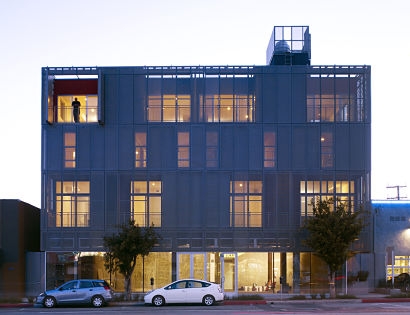
Expanding energy efficiency programs can help states create good jobs, reduce pollution, and help businesses and residents save money on energy costs.
Signatories called on states to increase their investments in critical efficiency and demand management programmes, including efforts to upgrade building ventilation to improve public health - an appeal guided both by the thread of the climate crisis and the experience of the ongoing pandemic. The letter highlighted that, between the Covid-19 relief and infrastructure packages passed by Congress in 2021, state and local governments will have access to billions of dollars in federal funds to grow these initiatives, which will create good jobs, reduce pollution, and cut energy costs for both businesses and residents.
“Efficiency investments are smart investments that support local family-wage jobs, save customers money, mitigate energy cost volatility, and help modernise buildings and facilities to prevent future crises” the signatories wrote.
The letter was signed by 59 organisations including the Arizona Technology Council, Eaton Corporation, JLL, Johnson Controls, Siemens, and Sierra Nevada. It is scheduled to be sent to officials in Arizona, California, Colorado, Illinois, Maryland, Michigan, Minnesota, New Hampshire, New Jersey, North Carolina, Oregon, Pennsylvania, Virginia, and Washington.
“With our buildings anchoring cities across the US, JLL believes the real estate industry is uniquely positioned to shape a better future. We have prioritised energy efficiency in all our locations because it saves money on utilities, modernises our properties with cutting-edge technology, keeps our clients and communities healthy, and helps us meet our ambitious sustainability goals” said Cynthia Curtis, SVP & Corporate Sustainability Officer, Americas at JLL. “We urge governors and policymakers to take advantage of the ample federal funding now available to scale their energy efficiency programmes and create a healthier and more resilient built environment for all.”
Ryan Dalton, Director of State Policy & External Affairs, SiemensUSA, added that around the world buildings account for around 40 percent of all energy usage, a figure that is projected to rise.
“We have seen the benefits of more efficient buildings, and those benefits are even clearer now at a time of energy scarcity and volatile energy markets” said Mr Dalton. “States across the US have an opportunity to help residents and businesses stabilise and reduce their utility costs by reducing the energy demands and energy waste in the buildings where they live and work. To lower energy costs, preserve resources, and reduce the pollution that will cause future climate and health crises, states must boost their investments in energy efficiency programs that also have significant public health benefits.”
Many of the investments championed in the letter could be made quickly through funds that have already been dispersed and programmes that already exist. States will also have opportunities to apply for various grants funded by last year’s Infrastructure Investments and Jobs Act (IIJA), according to the letter.
Specifically, the businesses called for states to dedicate or seek funds to:
Invest in air ventilation systems and buildings, including full retrofits, to reduce energy waste, improve indoor air quality, and boost public health outcomes;
Expand of demand-side energy management programmes that serve both the residential and commercial sectors, reducing fossil fuel pollution;
Grow low-income energy efficiency programs and services, bringing building upgrades and efficiency measures to populations that are less likely to use these programmes, such as renters and residents in multifamily housing;
Improve efficiency and ventilation at critical public facilities, including schools, hospitals, and airports that are often relied upon in emergencies; and
Develop job training programmes to expand the energy efficiency workforce while helping to retrofit residential homes.
The letter was organised by Ceres, the Building Performance Association, the California Energy Efficiency and Demand Management Council, the Energy Efficiency Business Coalition of Colorado, the Energy Efficiency Alliance of New Jersey, the Keystone Energy Efficiency Alliance, the National Association of Energy Service Companies, and the Virginia Energy Efficiency Council.
For additional information:

